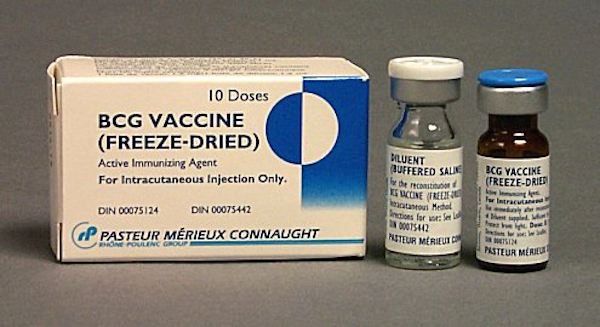Bengaluru: A new series of clinical trials is set to begin this week with the Bacillus Calmette-Guérin (BCG) vaccine — the 100-year-old tuberculosis vaccine — to help fight Covid-19.
The trial will be performed on older members of the population, who are at a higher risk of infection due to their weakened immunity, and on doctors and nurses, who are at a higher risk of more serious manifestations of the disease due to their level of exposure.
The first trial begins this week in the Netherlands, where 1,000 healthcare workers from eight hospitals will receive either the BCG vaccine or a placebo. The research is a collaboration of four countries, and apart from the Netherlands, three other teams are starting trials soon in Australia, the UK and Germany.
There could soon be one in India too, as the Pune-based Serum Institute of India, the world’s largest vaccine manufacturer and developer of a new form of the BCG vaccine, is ready to test it here.
Many people who will get vaccinated as a part of the trials were likely vaccinated in their childhood, but studies have shown that the TB vaccine’s effects offer protection for about 15 years.
Any effective way to increase immunity against Covid-19 will come as a huge relief to healthcare workers who are at the forefront of fighting the disease and are exposed to infected patients every day.
BCG vaccine
The BCG vaccine is named after French microbiologists Albert Calmette and Camille Guérin, who developed it almost exactly a 100 years ago, in 1919, to fight the highly contagious respiratory illness tuberculosis.
The vaccine was first used on humans in 1921, and is typically given to children under the age of one year. It played a major role after World War II, when in three years, over 8 million babies were vaccinated and the typical spread of TB was prevented.
But the vaccine is not perfect. On average, it has an efficiency rate of about 60 per cent in the population. And there is a large variation in how kids from different countries respond to the vaccination.
The vaccine was widely and regularly used in the Indian subcontinent. India and Pakistan were the first countries outside of Europe to introduce BCG mass immunisation, immediately after Independence in 1948. However, today, it is proving inefficient against lung TB, the most common form of the disease in India.
There are now studies underway to find a replacement.
A new variation of the vaccine, the VPM1002, is currently being tested for TB in a Phase III study (which means 300-3,000 people being tested for a promising drug) on adults in India. This is the vaccine that will be used to try and fight Covid-19, which is also a respiratory disease.
How can BCG help?
Vaccines increase the immune response specific to this kind of pathogen, and the antibodies produced by our white blood cells can then bind and neutralise a certain kind of virus. The BCG vaccine contains a weakened strain of the Mycobacterium bovis, a close relative of M. tuberculosis, the microbe that causes TB. But the vaccine purportedly does something more.
There is weak evidence, but some previous studies have shown that the BCG-induced response can actually improve our ability to fight some unrelated viruses as well. It could prevent up to 30 per cent of all known infections, not just from viruses. The vaccine has demonstrated that it can protect against other viral infections of the respiratory tract such as influenza.
These studies have been criticised for not being thorough in their methodology — some reviews have found positive correlation but clarify that more randomised trials are needed, while others find more beneficial correlations like this 2014 WHO review that found that the vaccine lowered mortality rate in children.
But overall, there is enough research being driven into the vaccination and reviews of such research still figuring out how much advantage we could gain. We’re finding out that the BCG vaccine induces something called “trained immunity” in our body, encouraging our cells to fight harder and longer.
The authors of one such study that demonstrated trained immunity are embarking on an independent clinical trial in Greece, which was designed before the Covid-19 pandemic began. The study will test the immune growth of the elderly to fight off other lung infections.
While the study itself was for the vaccine, people immunised with it can still contribute valuable data to Covid-19 studies.
Source: The Print
Image Courtesy: PrescriptionGiant
You may also like
-
Trade Connect E-platform For Exports Is Single Window, Fast, Accessible And Transformational: Shri Piyush Goyal
-
India Against Mpox
-
Combination of ‘Siddha’ Drugs Reduces Anemia in Adolescent Girls: Study
-
Five Successful Years of Pradhan Mantri Kisan Maandhan Yojana (PM-KMY)
-
Suspected Mpox Case Under Investigation; Patient Put Under Isolation, No Cause for Alarm
